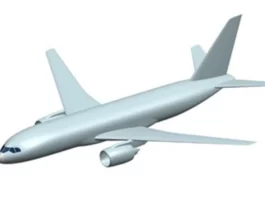Today, Croatia became the 20th member of the Eurozone and the 27th member of the Schengen Area. This makes Croatia the first member state of the European Union to join both the European Monetary Union and the border-free travel area in Europe on the same day.
The euro region, also known as the eurozone, is a currency union comprised of 20 member states of the European Union who have embraced the euro as their principal currency and sole legal tender, thereby implementing all European Monetary Union regulations.
The Schengen Area consists of 27 European countries that have abolished passports and all other forms of border control at their common borders.
The nation, which has been a member of the EU since 2013, has resolved to begin using the euro beginning in 2017. Together with Bulgaria, it entered the so-called waiting room of the Eurozone – the European Monetary Mechanism (ERM II) in 2020 and spent a minimum of two years there.
In July of this year, the finance ministers of the European Union gave the final green light for Croatia’s admission to the Eurozone on January 1. Then the exchange rate at which the euro will replace the kuna was determined – 7.53450 Croatian kunas per euro. Zagreb had a few months to prepare the currency changeover’s practical aspects.
In order for Croatia to adopt the euro, it was necessary for the country to fulfil certain criteria regarding the stability of prices and exchange rates, as well as maintain healthy public finances and reasonable long-term interest rates.
In the past year, Croatia managed to overcome the last obstacle on its way to full European integration – at the beginning of December, Zagreb received the green light from the Council of Justice and Home Affairs for the country’s membership in the Schengen area – the European space without border checks, into which 22 EU countries plus Iceland, Liechtenstein, Norway and Switzerland. At the same Council meeting, however, Austria opposed the admission of Romania and Bulgaria, which also did not receive support from the Netherlands due to concerns related to organized crime, illegal migration and security. Last month, the European Commission said that all three Schengen candidate countries now meet the necessary criteria for accession, with the European Parliament also giving its support.
Since the beginning of the new year, Croatia has eliminated 73 border checkpoints with its neighbours Slovenia and Hungary, both of which are also members of the Schengen zone. Additionally, 12 border checkpoints have been removed from the sea border. As of March 26 in, 2023, internal air border inspections are going to be eliminated. It is delayed because of specific technical details. Additionally, Zagreb will initiate the process of granting Schengen visas, and it will be able to access the Schengen Information System in its entirety.






